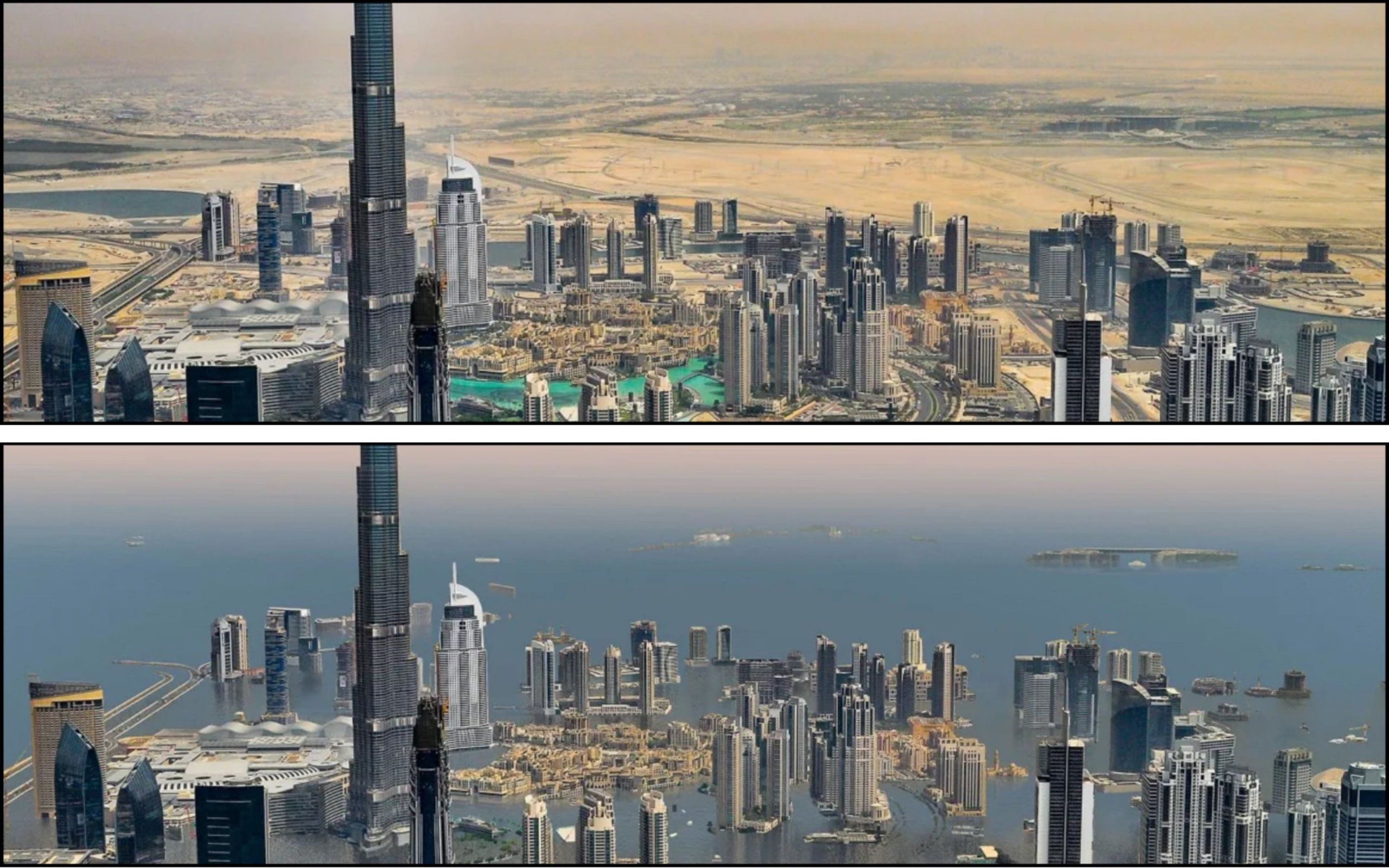Modeling by Climate Central analysts has shown that as a result of global warming of up to 2.9°C, five cities where international climate conferences have been held will be partially or completely flooded.
Scientists predict that the world will exceed the 1.5°C warming limit in the coming years, and by 2100 it will reach 3°C, CNN reports.
It is noted that climate change is leading to melting of glaciers, particularly in Antarctica, which will significantly increase ocean levels. Scientists warn that after crossing the 1.5°C warming limit, it will be difficult for people and ecosystems to adapt to new conditions.

Durban, South Africa, edition.cnn.com
"Decisions made at COP28 will shape the long-term future of cities on Earth's coasts, including Dubai," said Climate Central Chief Scientist and CEO Benjamin Strauss.
It is noted that at COP21 in Paris in 2015, more than 190 countries endorsed the Paris Agreement to limit global warming to well below 2°C, but preferably to 1.5°C. Current emissions put the world on a path to warming of up to 2.9°C, which would make many coastal communities, low-lying countries and small island states uninhabitable.

Dubai, United Arab Emirates, edition.cnn.com
"The survival of these places and their legacies will depend on whether government and industry leaders can agree to cut carbon emissions sharply and quickly enough to limit global warming to 1.5°C," Strauss said.

Copenhagen, Denmark, edition.cnn.com
According to the World Meteorological Organization, the year 2023 has already become the hottest in the entire history of observations. Every month from June to October, new global monthly temperature records are set by a wide margin. The ocean temperature is also reaching record values.
Climate Central highlighted that some 385 million people now live in areas that will eventually be inundated by sea level rise if global carbon emissions are drastically reduced.

Mumbai, India, edition.cnn.com
It says that even if warming is limited to 1.5°C, sea level rise will still affect an area that is home to 510 million people today. But if the planet exceeds 3°C, the ocean will flood the habitats of 800 million people.
Scientists emphasize that although the flooding may last for several centuries, with each fraction of a degree of warming, the effects of climate change worsen.

Lima, Peru, edition.cnn.com
The article emphasized that at COP28, world leaders will discuss how to reduce the use of fossil fuels that heat the planet to prevent the increasing likelihood of an underwater future. In 2023, countries will for the first time discuss a new system of indicators that will show how seriously they are lagging behind their climate goals, as well as how quickly the window of opportunity to reduce emissions is "narrowing".
Earlier, EcoPolitic wrote, that the study of the UN Intergovernmental Panel on Climate Change (IPCC) showed that by the beginning of the 2030s the world will exceed the limit of warming by 1.5°C, and by 2100 it will reach 3.2°C.
As EcoPolitic reported earlier, a study by American scientists showed that the world is at an early stage of an extreme climate situation and will exceed the level of global warming by 1.5°C by 2030 and by 2°C by 2050.





